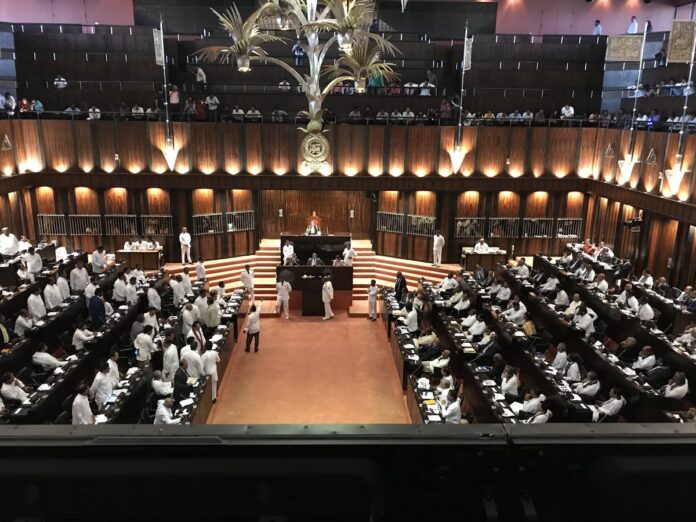March 18, Colombo (LNW): A recent survey conducted by the Centre for Policy Alternatives (CPA) has disclosed a concerning decline in public trust in parliamentary institutions and political parties in Sri Lanka.
The survey, titled ‘Survey on Democracy and Reconciliation in Sri Lanka,’ encompassed 1,350 participants across 25 districts in January.
According to the findings, public trust in parliament stands at a mere 22 per cent, while trust in political parties has plummeted to 19 per cent.
This decline in trust reflects shifting attitudes toward democratic institutions and an emerging preference for authoritarianism among some segments of the population.
The survey identified the Army and Courts as the most trusted institutions in the country, with the police receiving relatively lower levels of trust compared to these entities.
However, despite the Army and Courts maintaining high levels of public trust, trust in legislative bodies and political parties has experienced a significant downturn over the past decade.
In 2011, 63 per cent of Sri Lankans expressed trust in parliament, a figure that has now dwindled to 22 per cent in 2024. Similarly, trust in political parties has declined from 56 per cent in 2011 to a mere 19 per cent in 2024.
The survey also noted a noteworthy increase in the preference for authoritarian rule, with approximately one in ten Sri Lankans expressing support for authoritarian governance.
This trend has seen a significant uptick since 2018, coinciding with political upheavals during the Sirisena-Wickremesinghe government.
Despite the majority of Sri Lankans still favoring democratic governance, the survey underscores a concerning sentiment suggesting that some individuals view a dictatorial government as preferable under certain circumstances.
The CPA, a leading policy think-tank headquartered in Colombo, emphasised the need for addressing these trends and fostering greater trust in democratic institutions to uphold the principles of democracy and reconciliation in Sri Lanka.

